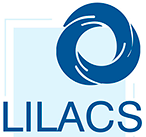Teaching methodologies to acquire theoretical, procedural and attitudinal knowledge in nursing
DOI:
https://doi.org/10.19136/hs.a24n2.5892Abstract
Objective: To assess the theoretical, procedural, and attitudinal knowledge of nursing students through teaching with clinical simulation versus audiovisual media and role-playing.
Materials and methods: A quasi-experimental, cross-sectional study. The study population consisted of first-year students of the FESZ Nursing Program. The sample was determined by calculating finite populations, with a total of 120 students, divided into three subgroups: "A" trained with clinical simulation (anatomical model); "B" trained with audiovisual media; and "C" trained with the role-playing technique. Data analysis was performed using SPSS.V23, and analysis of variance (ANOVA) and post hoc tests were performed for three categories.
Results: 82.5% were women in the simulation group, 55% in the audiovisual media group, and 72.5% in the role-playing group. The age ranged from 18 to 22 years. For theoretical knowledge, the audiovisual media group obtained a mean of x̅=49.740 (SD=9.305); for procedural knowledge, role-playing, x̅=62.470 (SD=8.782); and for attitudinal knowledge, audiovisual media, x̅=52 (SD=30.315). A statistically significant difference was identified between the simulation group and the audiovisual media group (p=.003), but not with the audiovisual media group.
Conclusions: The use of audiovisual media is a methodology that favors theoretical knowledge compared to other methodologies such as simulation and role-playing. Regarding procedural and attitudinal knowledge, there are no differences between the three methodologies.
Keywords: Knowledge, Attitudes and Practice in Health; Simulated Training; Audiovisual Resources; Paper Performance.
Downloads
Downloads
Published
Issue
Section
License
Copyright (c) 2025 Horizonte Sanitario

This work is licensed under a Creative Commons Attribution-NonCommercial-ShareAlike 4.0 International License.


































